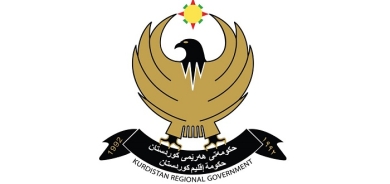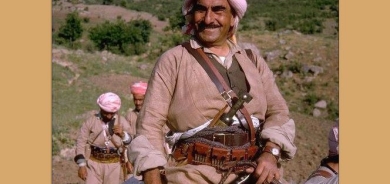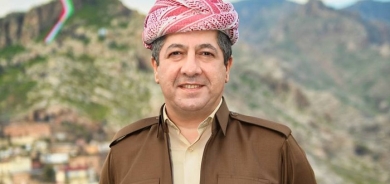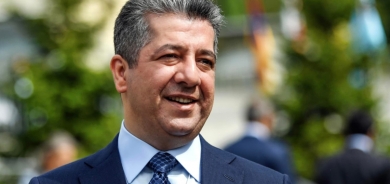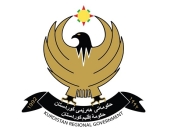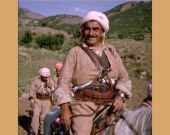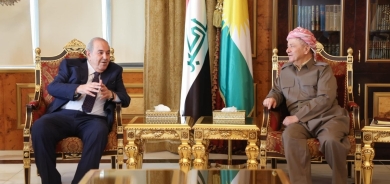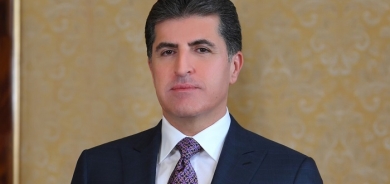How will the Civil Wars in Syria and Libya End?
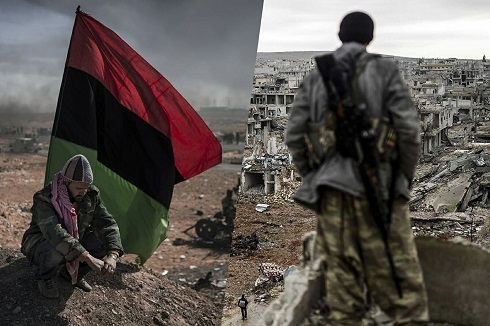
Libya has experienced political and civil instability since Muammar Qaddafi was overthrown and killed in 2011. In their article “Dignity and Dawn: Libya’s Escalating Civil War,” Daveed Gartenstein-Ross and Nathaniel Barr believe “the factors underpinning the civil war are complex, involving regional, tribal, political, and religious fault lines that often both overlap and conflict with one another to create a dizzying array of allegiances and rivalries.” They believe that the civil war can be seen through three lenses: “revolutionaries against members of the ancien regime, political Islamists against secular nationalists, and ethnic Arabs against Berbers and other non-Arabs.” The two main parties in the conflict are the internationally-recognized Government of National Accord (GNA), led by Prime Minister Fayez al-Sarraj, and the Libyan National Army (LNA) led by General Khalifa Haftar. The international community has become increasingly interested in the conflict for economic and humanitarian reasons.
Possible Military Victory
One important aspect of the civil war in Libya is the current duration as the conflict approaches six years. Karl R. DeRouen Jr. and David Sobek argue “the duration of the civil war has two interesting effects on its outcome. Duration decreases the probability of a government victory and increases the probability of a treaty.” According to their data, “if the rebels can survive the first few months, their chance of winning continues to rise,” and a prolonged conflict of nearly six years does not benefit the GNA.
The complex nature of the civil war in Libya also makes it difficult to determine the likelihood of a military victory, and to what extent it would be successful. Following the 2011 overthrow of the Gaddafi regime, Libya was largely controlled by several different militias. When the 2014 election results were contested, the country split between the LNA and the GNA, escalating the violence. The two administrations have been influenced by different ideologies and ethnicities, and both have faced internal division and fragmentation. According to the results from the Mason, Weingarten, and Fett data analysis, these conditions do not make it easy to determine the likelihood or success of a regime or rebel victory. Their results found that a government victory was more likely when fighting an ethnically-based civil war, but not when fighting an ideologically-based war. They also showed that regimes were less successful at defeating revolutionary rebel groups, and the LNA appears to be a revolutionary group rather than a secessionist group.
Based on Toft’s assessment regarding the best way to end a civil war, the most stable outcome in Libya would require a victory by the LNA. She argues that “when governments achieve victory, the military is left intact, as are the other branches of government. As a result, the government retains the capacity to repress or harm the population.” Toft believes a critical component to post-conflict stability is security-sector reform (SSR), “the means and methods to refashion and reinstitutionalize the military.” This is easier to achieve when there is a rebel victory because “rebels need to buttress the legitimacy of their win: allowing greater liberalization of the political system is an effective means of doing so.” With a rebel victory, the LNA “has to appeal not only to a portion of its domestic audience for approval but also to an international community not predisposed to the overthrow of national governments.” Although the GNA is backed by the UN, General Haftar and the LNA have increased their international legitimacy and control the majority of Libya’s oil reserves. Regarding a military victory in the Libyan civil war, a rebel victory is likely to yield a more stable outcome.
Possible Negotiated Settlement
Out of this assessment’s four potential ends to a civil war (i.e. regime military victory, rebel military victory, inclusionary negotiated settlement, and exclusionary negotiated settlement), the least successful appears to be an exclusionary negotiated settlement. A negotiated settlement that excludes either the GNA or LNA from obtaining any political representation or security guarantee would foster resentment of the leadership within the excluded party. Call argues, “political exclusion acts as a trigger for renewed armed conflict.” This type of settlement would likely not be successful in the case of Libya.
According to Hartzell, Hoddie, and Rothchild, two key components to a durable negotiated settlement are including requirements for territorial sovereignty for threatened groups in the peace agreement and having third-party states or organizations provide security assurances for the former combatants. For this more inclusionary settlement to be sustained, there needs to be, what Toft referrers to as, “a balance of carrots and sticks.” If the Libyan civil war ended in a negotiated settlement, then an inclusionary settlement would likely be the most successful. However, a rebel military victory offers the best possibility for long-term stability.
The Syrian Civil War
The Syrian civil war was initiated in 2011 by pro-democracy protests against President Bashar al-Assad. According to the Council on Foreign Relations’ Global Conflict Tracker, “three campaigns drive the conflict: coalition efforts to defeat the Islamic State, violence between the Syrian government and opposition forces, and military operations against Syrian Kurds by Turkish forces.” Since the start of the war, more than 400,000 people have died, “as of January 2019, more than 5.6 million have fled the country, and over 6 million have been internally displaced.”
Possible Military Victory
The pro-Assad regime forces are already at a disadvantage, according to DeRouen Jr. and Sobek, due to the length of the war. They argue that the rebel forces are at an advantage if they can survive the initial few months of the conflict. The rebels also have an advantage because of their revolutionary nature, which is more difficult for a government to defeat.
Mason, Weingarten, and Fett argue that ethnic-based conflicts tend to favor a government military victory, and the civil war in Syria is fueled by ethnic and religious divisions. According to Michael Eisenstadt, “after seven years of war, rebel forces are depleted and exhausted too—and about as divided among themselves as ever. Indeed in most places, they may no longer be capable of sustained resistance.” He argues that “pro-regime forces have consistently acted with greater unity of purpose,” they have managed to develop allies across religious and ethnic divides. The rebel forces have, in some instances, been split into different factions across the country. Although “civil wars that end in an outright military victory by one side are less likely to lead to a renewed conflict than settlements that leave significant military capabilities intact,” the divided and widely dispersed rebel groups make it difficult for the regime to secure an outright victory.
Although this assessment agrees with Toft’s argument that a rebel military victory is the best outcome for sustained stability, it is not clear how quickly that could be achieved in Syria. External support for the rebel forces needs to come from a recognized international power and not an extremist group if the rebel forces expect stability in their campaign.
Possible Negotiated Settlement
It is unlikely that the civil war in Syria will end with a politically inclusive negotiated settlement. The Assad regime has gone to great length to crush anti-regime supports, even deploying chemical weapons on rebel strongholds that have killed hundreds of innocent citizens. The only possible negotiated settlement between the regime and rebels would be politically exclusive and likely dictated by the Assad regime, thus creating a very unstable environment, further repressing a population that has already been marginalized by the current government. As Call claims, the exclusive settlement will act as the trigger for renewing the conflict. Additionally, the political environment lacks democratic experience and the country has been at war for years, which are both factors that Hartzell, Hoddie, and Rothchild argue are contributing factors that make exclusionary negotiated settlements fail.
Christopher O'Brien
International Policy Digest

